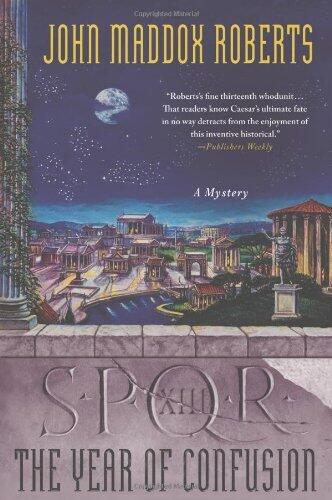
The Year of Confusion
Language: English
Format: Hardcover
ISBN 10: 0312595077
ISBN 13: 9780312595074
Publication date:
February 16th, 2010
Publisher: Minotaur Books
Pages: 288
Genres: Mystery, History
In a time of political upheaval, Gaius Julius Caesar stands at the helm of Rome, armed with ambition and the responsibility of governance. As he confronts the complexities of his role as Dictator, he recognizes the need for a monumental change: the revision of the Roman calendar. The previous system has become increasingly chaotic, reflecting the tumult of the era, and Caesar is determined to restore order and predictability to the lives of his citizens.
As Caesar embarks on this ambitious project, he encounters resistance from various factions within Roman society. Politicians, priests, and common citizens all have their own stakes in the current calendar, revealing the deep-seated traditions that govern their lives. The narrative unfolds against a backdrop of intrigue, as Caesar navigates the labyrinth of power, loyalty, and dissent while trying to convince his fellow Romans that change is not only necessary but beneficial.
Amid the political drama and societal shifts, the personal trials of key figures come to light. Relationships are tested, and alliances formed as the stakes become increasingly high. The transformation of the calendar serves as a metaphor for the larger changes sweeping through Rome, capturing the essence of an era marked by confusion, ambition, and the relentless pursuit of progress.
As Caesar embarks on this ambitious project, he encounters resistance from various factions within Roman society. Politicians, priests, and common citizens all have their own stakes in the current calendar, revealing the deep-seated traditions that govern their lives. The narrative unfolds against a backdrop of intrigue, as Caesar navigates the labyrinth of power, loyalty, and dissent while trying to convince his fellow Romans that change is not only necessary but beneficial.
Amid the political drama and societal shifts, the personal trials of key figures come to light. Relationships are tested, and alliances formed as the stakes become increasingly high. The transformation of the calendar serves as a metaphor for the larger changes sweeping through Rome, capturing the essence of an era marked by confusion, ambition, and the relentless pursuit of progress.